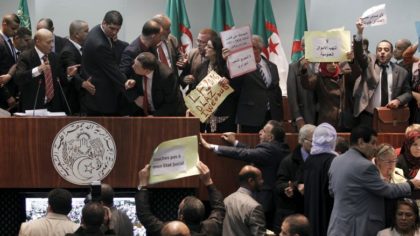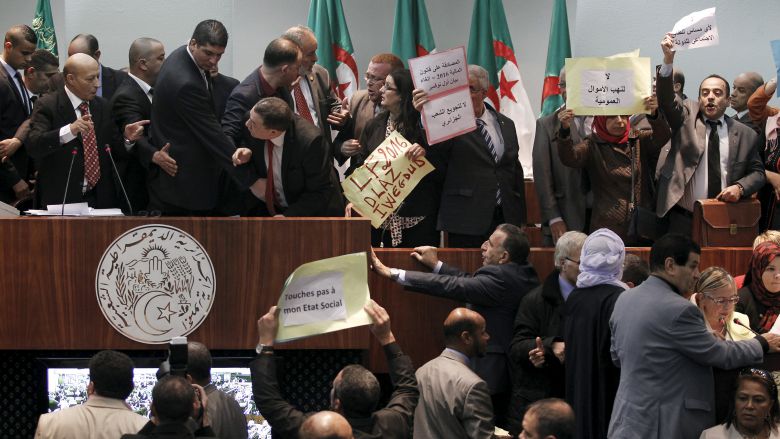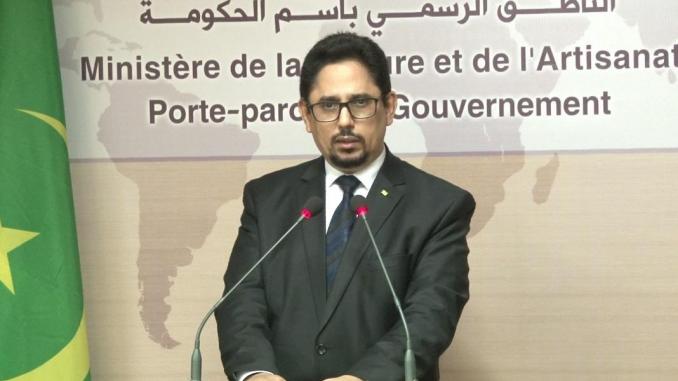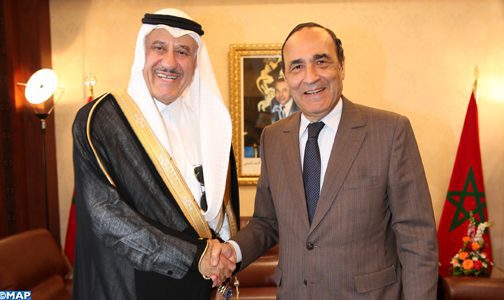 Morocco’s African policy, its triumphal return to the African Union and its largescale investments in Africa are sending shockwaves across Algeria. Outperformed by Morocco in Africa at the economic and political levels, Algerian officials have lost track of diplomatic norms blaming the failure of their country’s policy in Africa on Rabat’s use of cannabis money to expand its economic and political influence.
Morocco’s African policy, its triumphal return to the African Union and its largescale investments in Africa are sending shockwaves across Algeria. Outperformed by Morocco in Africa at the economic and political levels, Algerian officials have lost track of diplomatic norms blaming the failure of their country’s policy in Africa on Rabat’s use of cannabis money to expand its economic and political influence.
The recent statements of the Algerian foreign minister, Abdelkader Messahel, who accused Morocco of using drug money, come in a series of uncorroborated accusations by Algerian officials who refuse to pull their head out of the sand to point to the real impediment to their African policy.
Clearly, as they keep condescending towards Africa, which they see as a mere sphere where they have used oil money to assert a regional hegemony on frail foundations, Algerian officials are increasingly drawn by their country’s public opinion to explain how Morocco managed without oil and gas to make inroads in Africa while their country lags behind. Algeria’s easy answer to this question is to blame Morocco’s success on cannabis and money laundering.
Speaking at the Algerian Business Leaders Forum CE), Messahel, bluntly accused Morocco of “laundering cannabis money via its banks in the continent”. The head of the Algerian diplomacy went on to pretend that ‘African heads of state” told him so.
He added that Morocco’s flag carrier RAM which has been operating in Africa and serving destinations at times western companies refused to operate flights to Ebola hit countries is “actually carrying something other than passengers”.
Messahel concluded his diatribe against Morocco with a desperate call that there is no “better country than Algeria” for investments in the continent.
Certainly, attacking a successful neighbor to attract investments will not work to solve Algeria’s structural dysfunctions and its unpropitious business climate in the absence of genuine reforms.
So far, Morocco’s response to the hostility expressed by the head of Algerian diplomacy has been serene to say the least. Morocco’s foreign ministry has recalled its Ambassador to Algiers, summoned the Algerian chargé d’affaires in Rabat, and issued a statement stressing that the verbal blunders by Algerian diplomats “will not undermine the credibility nor the success of Morocco’s cooperation with sisterly African countries, which has been lauded by heads of African states and appreciated by local populations and stakeholders in the continent.
The statement added that spreading lies “reflects the striking failure and economic, political and social problems facing Algeria and affecting large categories of the Algerian population.
As it heads straight towards a spiral of economic and social turmoil reminiscent of the situation that it experienced in the late 1980s and the 1990s, Algeria tries desperately to catch up with its western neighbor Morocco and when it fails, it resorts to unfounded allegations and accusations.
While Morocco increasingly outmanoeuvres Algiers on the continent thanks to a decades-long coherent African strategy, underpinned by south-south cooperation and economic partnerships, the military junta in Algeria is losing track feeling paranoid by a continental dynamic in favor of Morocco.
In a failed endeavor to counter Morocco’s growing clout in Africa, Algeria attempted to hold a forum for African investors last December, but the event closed on a tone of utter fiasco amid tensions between the government and the association of Algerian investors organizing the event.
Yet, the roots of Algerian failure in boosting its influence as a model and credible economic partner in Africa are to be found in the structure of its rentier economy.
With its widespread corruption, complete dependence on hydrocarbons, underdeveloped banking system, over-subsidized and uncompetitive enterprises and dwindling foreign reserves, Algeria came to represent all that is wrong in the African economy.
At the image of its ailing President Abdelaziz Bouteflika, Algeria is stuck in a Cold War mindset where ideology takes primacy. The antagonism of Algerian officials makes them myopic to the changes experienced in Africa where many countries, such as Ghana, Ethiopia, Tanzania and Rwanda are posting some of the highest economic growth rates globally.
Africa is a two-speed continent where some countries are making fast progress while others lag behind due to lack of good governance and political will. Algeria is certainly on the side that is lagging behind.
As the legitimacy of the Algerian regime erodes at home, its ideological alliances built on generous oil money handouts are gradually dismantled, since Africa lives in a new dawn where genuine win-win partnerships, technology transfer and investments are the best way to strengthen bilateral relations. To that end Morocco, joining action to words, has geared 60% of its investments to Africa. In the meantime, Algeria remains a tinderbox waiting to explode from within.
What Algerian officials fail to see is that the return of the North African Kingdom to its African Institutional family was the result of a years-long process of strengthening ties with African countries. This return was followed by a request to join one of Africa’s most active sub-regional groupings, the ECOWAS, as a full-fledged member. Such a membership will put the final nail in Algeria’s strategy to contain Morocco.
The failure of Algeria’s Africa policy stands in stark contrast to the success of Morocco’s south-south cooperation approach with Africa. The numerous trips by King Mohammed VI to several countries in Africa, many of them former allies of Algeria on the Sahara issue, reflect the clout that the Kingdom has gained in Africa as a credible economic and political partner offering win-win co-development partnerships.



